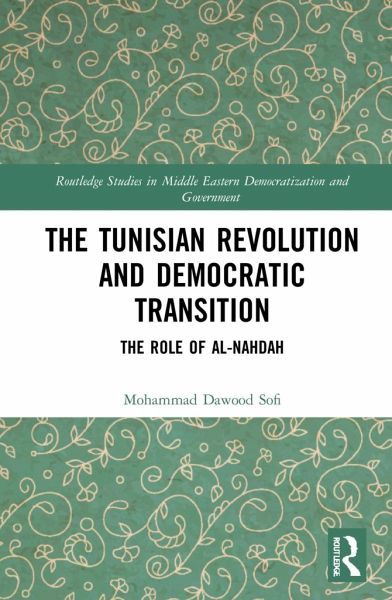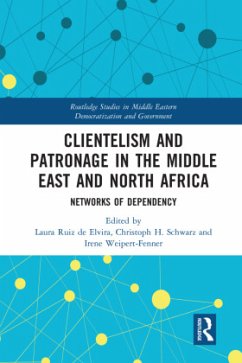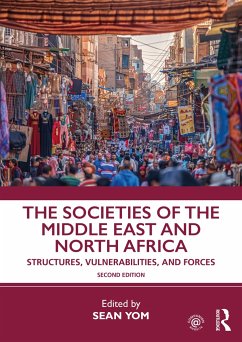
The Tunisian Revolution and Democratic Transition
The Role of al-Nahdah
Versandkostenfrei!
Versandfertig in 6-10 Tagen
45,99 €
inkl. MwSt.
Weitere Ausgaben:

PAYBACK Punkte
23 °P sammeln!
Drawing on the history of post-independence Tunisia, the book studies the evolution of al-Nahdah as a political party in Tunisia and its role in a protracted struggle to shape the post-authoritarian order along democratic lines. It explores al-Nahdah's relationship with the Tunisian state, society and beyond that resulted in shaping its fluctuating expressions of ideology and practices.State repression, political participation, or internal differentiation (among other factors) place an Islamic movement (in this case al-Nahdah) in such a situation that demands a perpetual self re-evaluation as ...
Drawing on the history of post-independence Tunisia, the book studies the evolution of al-Nahdah as a political party in Tunisia and its role in a protracted struggle to shape the post-authoritarian order along democratic lines. It explores al-Nahdah's relationship with the Tunisian state, society and beyond that resulted in shaping its fluctuating expressions of ideology and practices.
State repression, political participation, or internal differentiation (among other factors) place an Islamic movement (in this case al-Nahdah) in such a situation that demands a perpetual self re-evaluation as well as implementation of ideology, objectives, and political programmes. The study explains how the socio-political setting in Tunisia demanded various ideologically opposite currents (Islamic, liberal, or leftist) to endure cross-ideological cooperation either to contest authoritarian regimes or to engage in the political process. It more importantly analyzes the trajectory of a gradual democratization process in the country and provides evidence explaining the impact and importance of a vibrant civil society, building alliances, and sharing of power.
The book provides comparative analytical attention to the primary sources on these issues to create a critical historiography. It thus adds to the body of literature on the state, society, and politics in the MENA region and particularly targets students, scholars, and social scientists interested in understanding the nature of power and politics in Tunisia and beyond.
State repression, political participation, or internal differentiation (among other factors) place an Islamic movement (in this case al-Nahdah) in such a situation that demands a perpetual self re-evaluation as well as implementation of ideology, objectives, and political programmes. The study explains how the socio-political setting in Tunisia demanded various ideologically opposite currents (Islamic, liberal, or leftist) to endure cross-ideological cooperation either to contest authoritarian regimes or to engage in the political process. It more importantly analyzes the trajectory of a gradual democratization process in the country and provides evidence explaining the impact and importance of a vibrant civil society, building alliances, and sharing of power.
The book provides comparative analytical attention to the primary sources on these issues to create a critical historiography. It thus adds to the body of literature on the state, society, and politics in the MENA region and particularly targets students, scholars, and social scientists interested in understanding the nature of power and politics in Tunisia and beyond.














